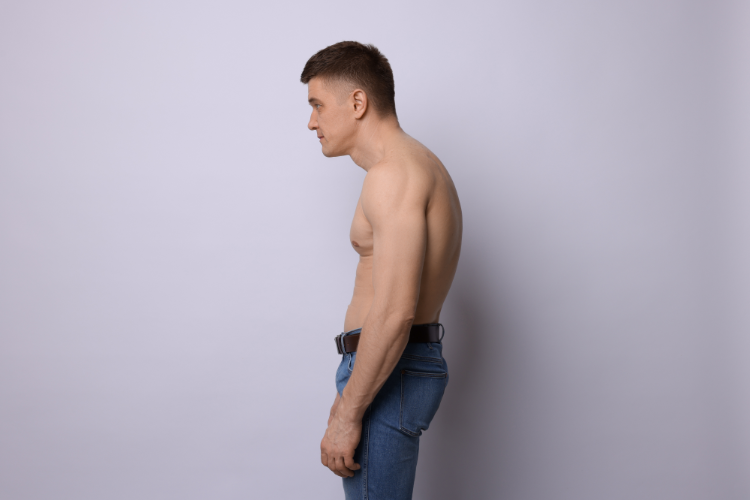There’s a unique kind of frustration that comes with a shoulder injury.
You go to reach, lift, or stretch—and suddenly, you’re reminded that something just isn’t working like it used to. Whether it came on gradually or followed an accident, shoulder pain can change the way you interact with the world around you.
We see that frustration every week in our clinics, and we’re here to turn it into progress. Recovery from a shoulder injury is rarely about doing more—it’s about doing the right things at the right time, in the right way.
>>>Request your evaluation online, and let’s build a recovery strategy that makes sense for your body and your life.
Every Shoulder Has a Story
Some of the people we work with remember the exact moment their shoulder gave out. Others wake up one day and realize they’ve been adjusting their movements for weeks—avoiding certain tasks, sleeping in awkward positions, or relying too much on the opposite arm.
The causes behind shoulder injuries vary, but the patterns we see are familiar: a slow loss of motion, an increasing reliance on compensation, and a growing sense of limitation. The longer it goes unaddressed, the more ingrained these patterns become—and the harder it is to break free without help.
We focus not just on treating the injured tissue, but on changing the patterns that caused or reinforced the injury in the first place.
Why Shoulder Injuries Need More Than Rest
There’s a common belief that time alone will heal a sore shoulder. And while that may be true for mild strains, many of the issues we treat—like frozen shoulder, rotator cuff tears, or post-surgical stiffness—need more than rest. They need guided reactivation.
Early in recovery, it’s all about restoring comfort and mobility. But passive movement alone isn’t enough. Without rebuilding the strength and coordination of the surrounding muscles, the joint stays vulnerable—and patients often find themselves stuck in a cycle of flare-ups.
That’s why our treatment process emphasizes intentional movement, supported by real-time feedback and hands-on guidance. We create a framework that evolves as you progress, moving you from cautious motion to confident strength.
What Effective Shoulder Rehab Looks Like
When someone walks into our Upper Manhattan clinic with a shoulder injury, we begin by listening. What can’t you do right now that you used to do easily? What’s your biggest goal—lifting your child again, sleeping on your side, getting back to tennis?
Once we know your story, we begin building your plan.
We use techniques and tools that meet your needs where you are:
- Manual Therapy to reduce joint stiffness and improve comfort during movement
- Controlled mobility drills to retrain your range without forcing it
- Progressive loading to rebuild shoulder strength safely
We may also incorporate Active Release Technique for soft tissue adhesions, or Low-Level Laser Therapy to accelerate tissue healing, especially after surgery or chronic inflammation. Every approach we take is tailored—not templated.
Getting Past the Setbacks
We understand that progress doesn’t always follow a straight line. Maybe you tried PT before and it didn’t help. Maybe you’re afraid of pushing too far. Maybe you’ve been told that surgery was the only option—but you’re hoping to avoid it.
These are real concerns, and we address them with honest conversations and thoughtful, one-on-one care. We’re not here to push—we’re here to partner with you. Recovery is as much about trust and consistency as it is about technique.
And with the right support, that breakthrough moment—where you reach pain-free, lift without hesitation, or sleep through the night—can come sooner than you think.
A Neighborhood Approach to Shoulder Recovery
Living in Upper Manhattan means you have access to exceptional care without needing to leave your community. We’ve helped professionals in Morningside Heights regain productivity, artists in Harlem return to their craft, and students near Columbia resume athletics after shoulder injuries.
Wherever you're coming from, you’ll find specialized care nearby:
- Our Harlem location serves Central Harlem, Hamilton Heights, and Sugar Hill
- The Morningside Heights clinic is convenient for Columbia and Barnard students, as well as Manhattanville residents
Each clinic offers advanced treatment options and the continuity of care that helps people get real results.
Don’t Wait for the Pain to Go Away on Its Own
The shoulder is resilient—but without the right care, it can remain limited for months or even years. If you’ve been waiting it out, modifying your movements, or relying on the other arm to pick up the slack, it’s time to try a smarter solution.
Call 212-222-6525 or request your evaluation online.
Let’s restore your reach, rebuild your strength, and get you back to doing what you love—without pain.







